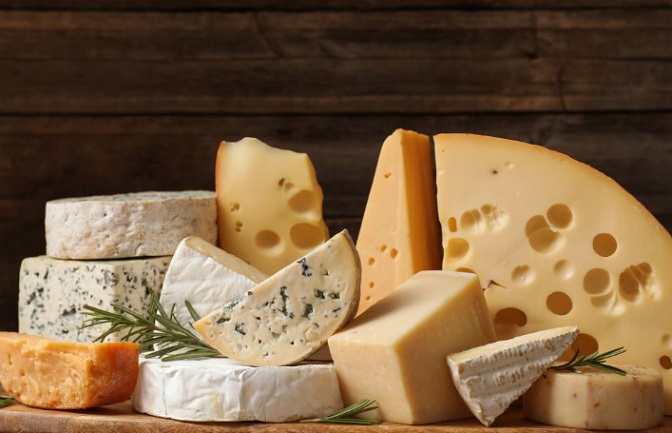Nikhil Prasad Fact checked by:Thailand Medical News Team Nov 25, 2025 3 months, 15 hours, 51 minutes ago
Medical News: Growing Evidence That a Simple Weekly Cheese Habit Could Help Protect the Brain
A major new study involving more than 7900 older adults in Japan is drawing attention to a surprising dietary link. Researchers from Niimi University, the National Center for Geriatrics and Gerontology, the Japan Agency for Gerontological Evaluation Study, Meiji Co Ltd, Chiba University and the Institute for Health Economics and Policy found that seniors who consumed cheese at least once a week had a noticeably lower risk of developing dementia over a three-year period. This
Medical News report looks at how something as ordinary as a slice of cheese might offer meaningful long-term cognitive benefits.
 New research shows weekly cheese consumption may help reduce dementia risk in older adults
How The Study Was Conducted
New research shows weekly cheese consumption may help reduce dementia risk in older adults
How The Study Was Conducted
The research team analyzed participants aged 65 and above from the Japan Gerontological Evaluation Study conducted between 2019 and 2022. None of the individuals had been certified for long-term care at the start. Cheese eaters were defined as those consuming it once or more per week, while non-consumers rarely or never ate cheese. After applying strict matching methods to ensure both groups were similar in age, health status, education and daily functioning, the researchers compared dementia cases recorded in Japan’s national long-term care insurance system.
Key Findings Point to A Protective Effect
The results were striking. Over three years, only 3.4 percent of weekly cheese consumers developed dementia compared to 4.5 percent of non-consumers. This difference translates to roughly 10 fewer dementia cases per 1000 older adults. Statistical modeling confirmed a 24 percent lower dementia risk among those who consumed cheese weekly. Most participants consumed processed cheese, though some also reported eating white mold or fresh cheeses. The researchers note that even though processed cheese has fewer fermentation-related compounds, the observed benefits remained consistent.
Why Cheese Might Support Brain Health
Cheese contains a combination of nutrients and natural compounds that may support cognitive function. These include proteins, essential amino acids and vitamin K2, which helps maintain healthy blood vessels. Fermented varieties also deliver beneficial bacteria and bioactive molecules linked to reduced inflammation and positive effects on the gut-brain axis. Because vascular disease and chronic inflammation are major contributors to dementia, these nutritional factors may collectively help explain the protective association.
Conclusion
While cheese is not a cure and the reduction in risk is modest, the findings add to growing evidence that simple dietary habits may play an important role in maintaining brain health in aging populations. For a country like Japan where dairy intake is relatively low, even small, regular amounts appear to make a measurable difference. Further research is needed to understand which types of cheese offer the strongest benefits and how much intake provides opti
mal protection.
The study findings were published in the peer reviewed journal: Nutrients.
https://www.mdpi.com/2072-6643/17/21/3363
For the latest on Dementia, keep on logging to Thailand
Medical News.
Read Also:
https://www.thailandmedical.news/articles/alzheimer,-dementia-
